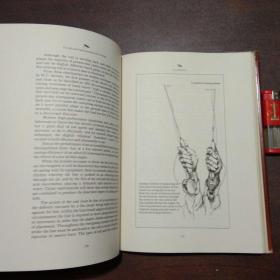Content:
Introduction: Fishing is a popular outdoor activity that offers relaxation, tranquility, and the thrill of catching fish. Whether you are a beginner or an experienced angler, mastering the art of fishing requires practice, patience, and the right techniques. In this article, we will provide you with essential tips and techniques to help you improve your fishing skills and enjoy a successful day on the water.
Choose the Right Equipment: The first step in learning how to fish effectively is to invest in the right equipment. Here are some key items you should consider:
a. Rod and Reel: Select a rod and reel that match the type of fishing you plan to do. For example, a spinning reel is suitable for light to medium-duty fishing, while a baitcasting reel is ideal for heavier lures and larger fish.
b. Line: Choose a line that matches the size and strength of the fish you are targeting. Monofilament, fluorocarbon, and braided lines are popular choices, each with its own advantages and disadvantages.
c. Lures and Baits: Research the types of fish in your area and choose appropriate lures or baits. Live bait, artificial lures, and natural baits can all be effective, so experiment with different options to see what works best.

Learn the Basics of Casting: Casting is a fundamental skill that every angler should master. Here are some tips to improve your casting technique:
a. Practice casting in a wide, open area to avoid obstacles and practice your form.
b. Hold the rod with a relaxed grip and keep your elbow close to your body.
c. Use a smooth, fluid motion to cast the line, avoiding any sudden movements.
d. Adjust your casting distance by adjusting the angle of your rod and the amount of line you pull out.
Understand Fish Behavior: To be successful at fishing, it's essential to understand the behavior of the fish you are targeting. Here are some tips to help you learn more about fish:
a. Research the species you are interested in, including their feeding habits, preferred water temperatures, and migration patterns.
b. Observe the water's surface for signs of fish activity, such as splashes or bubbles.
c. Pay attention to the weather and time of day, as these factors can influence fish behavior.
Learn to Read the Water: Reading the water is a crucial skill that can help you identify potential fishing spots. Here are some tips to improve your water-reading abilities:
a. Look for areas with vegetation, rocks, or other structures that fish may use as cover or to ambush prey.
b. Observe the water's color and clarity to determine if there are fish present.
c. Pay attention to currents and eddies, as these can be productive fishing spots.
Patience is Key: Fishing is a waiting game, and patience is essential for success. Here are some tips to help you stay patient and focused:
a. Set realistic expectations and understand that not every fishing trip will result in a catch.
b. Take breaks to relax and enjoy the natural surroundings.
c. Be prepared to spend time adjusting your technique and exploring different spots.
Conclusion: Learning how to fish effectively requires time, practice, and a willingness to learn. By investing in the right equipment, mastering casting techniques, understanding fish behavior, and developing patience, you can improve your fishing skills and enjoy a more successful and enjoyable fishing experience. Remember, the best anglers are those who continue to learn and adapt their techniques over time. Happy fishing!












